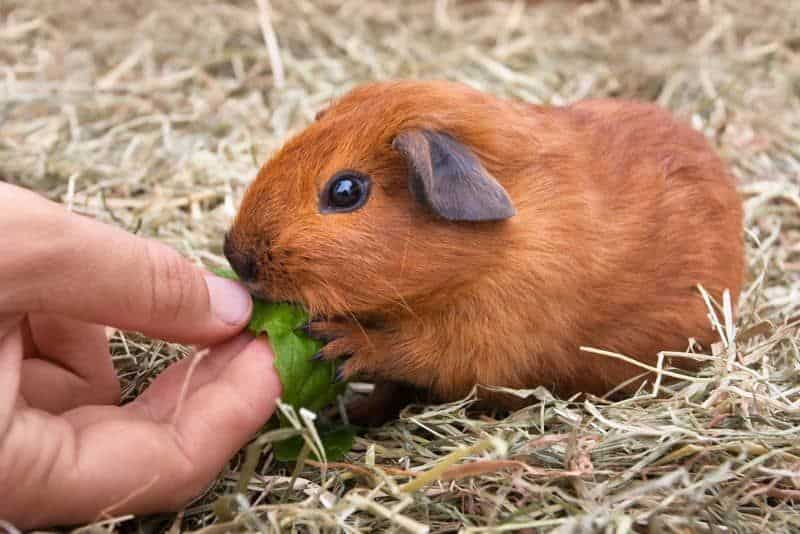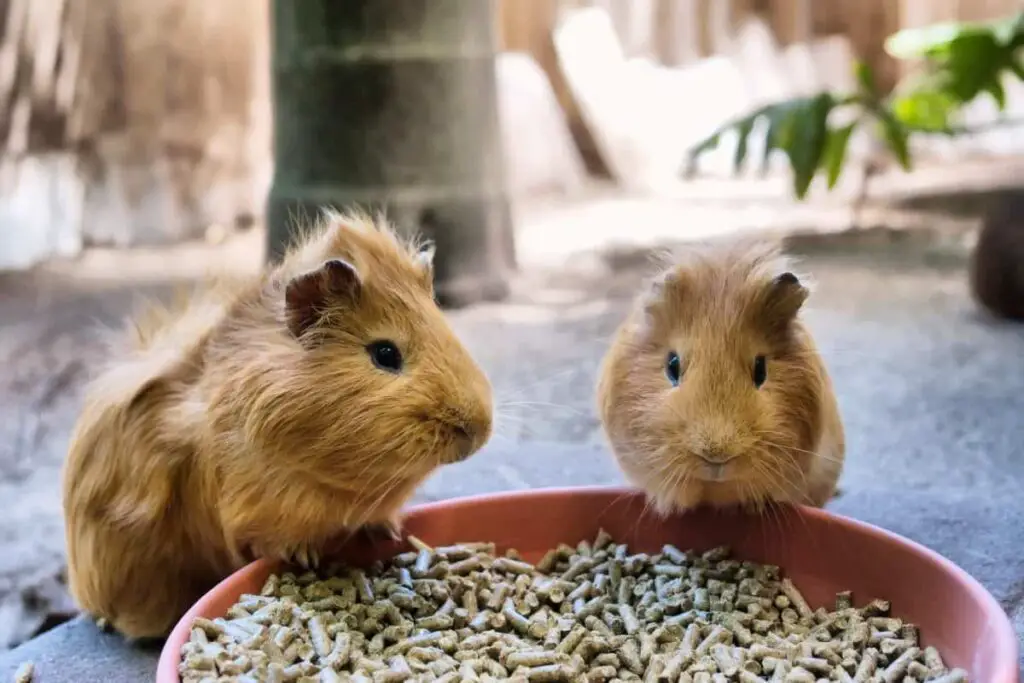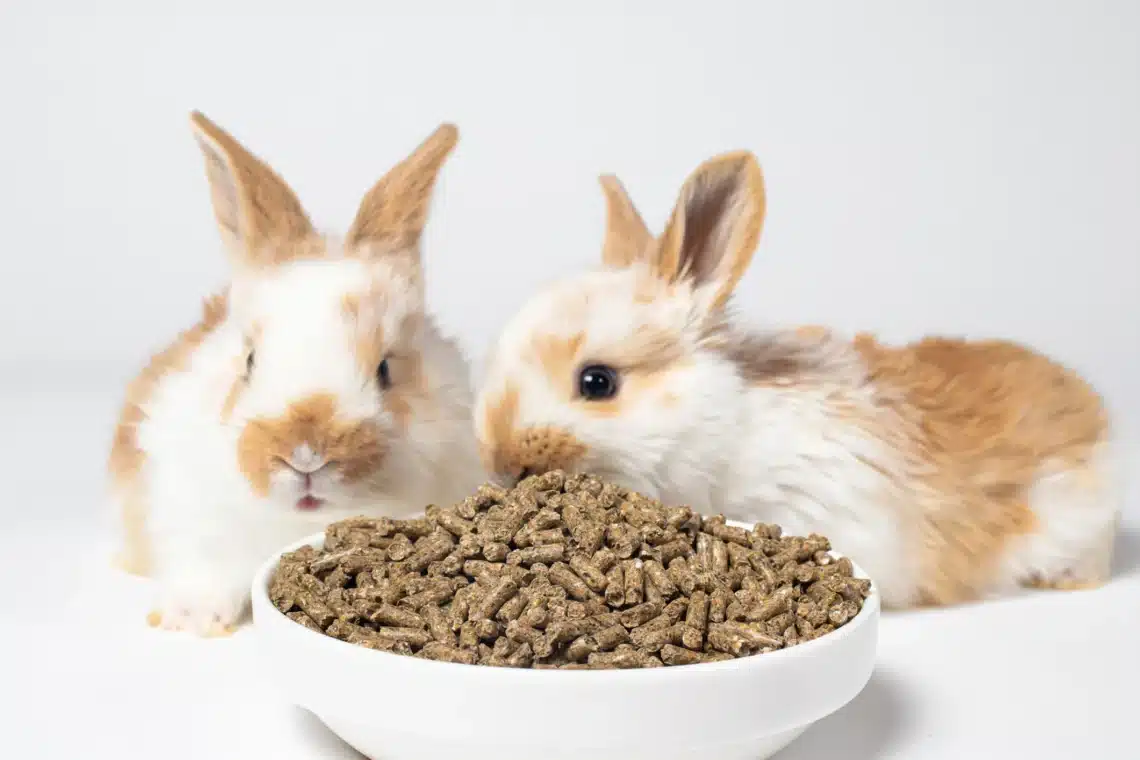Introduction
Can Guinea Pigs Eat Rabbit Pellets: Guinea pigs, those charming and gentle rodents that have captured the hearts of pet enthusiasts worldwide, are known for their insatiable appetite for various foods. While their primary diet consists of hay, fresh vegetables, and a small portion of specially formulated guinea pig pellets, many pet owners wonder if they can diversify their guinea pig vibrate cage diet by rabbit pellets. It’s a common question, as rabbit pellets may seem like a convenient alternative or an interesting to their diet. However, it’s essential to delve into the nutritional needs and dietary requirements of guinea pigs to determine whether rabbit pellets are a suitable option for these furry companions.
Guinea pigs, scientifically known as Cavia porcellus, are herbivorous creatures with a sensitive digestive system. Their diets should primarily comprise hay, as it is an essential fiber to maintain healthy digestion and keep their teeth in check. Fresh vegetables like leafy greens and bell peppers supply essential vitamins and minerals, and specially formulated guinea pig pellets are designed to nutrients to meet their dietary needs. These pellets contain vitamin C, a crucial nutrient for guinea pigs, as they cannot synthesize it on their own.
On the other hand, rabbit pellets are formulated for rabbits, which have distinct nutritional requirements compared to guinea pigs. While there are some similarities in their dietary preferences, such as the need for fiber, there are significant differences in the composition of their diets. Rabbit pellets contain higher levels of protein and lower levels of vitamin C than guinea pig pellets. This difference in vitamin C content is particularly critical, as guinea pigs are prone to scurvy, a deficiency disease that can lead to serious health issues.

Can you use rabbit pellets for guinea pigs?
They require an outside source of this vitamin, and so commercial guinea pig pellets are supplemented with vitamin C, whereas rabbit food is not. A guinea pig fed only rabbit pellets can develop scurvy, which is a serious disease caused by vitamin C deficiency.
Vitamin C Deficiency: Guinea pigs are highly susceptible to vitamin C deficiency, and relying on rabbit pellets as their primary food source can deprive them of this essential nutrient. Over time, this deficiency can lead to scurvy, causing symptoms such as joint pain, lethargy, and even death if left untreated.
Protein Overload: Rabbit pellets generally contain more protein than guinea pigs require. Excess protein intake can strain their kidneys and lead to kidney problems, which are particularly concerning because guinea pigs are predisposed to kidney issues.
Digestive Health: Guinea pigs have sensitive digestive systems that require a balanced diet to function optimally. Rabbit pellets, which may have different fiber content, could disrupt their digestion and lead to gastrointestinal problems.
What happens if my guinea pig eats rabbit pellets?
Feeding a guinea pig rabbit pellets is extremely dangerous – in some cases, your cavy may end up facing deadly health issues such as scurvy. The reason that it’s never good to get confused between guinea pig pellets and rabbit pellets comes down to the content of the pellets.
Vitamin C Deficiency: One of the most significant concerns when guinea pigs consume rabbit pellets is the risk of vitamin C deficiency. Guinea pigs require a consistent supply of vitamin C in their diet to prevent scurvy, a deficiency disease that can lead to a range of health issues. Rabbit pellets generally do not contain enough vitamin C to meet a guinea pig’s daily requirement, potentially putting them at risk if rabbit pellets become a substantial part of their diet.
Digestive Upset: Guinea pigs have sensitive digestive systems, and rabbit pellets with different fiber content can disrupt their digestion. This may lead to issues such as diarrhea, constipation, or bloat, all of which can be uncomfortable and potentially harmful to your pet.
Protein Overload: Rabbit pellets tend to contain higher levels of protein than guinea pigs need. Excessive protein intake can strain their kidneys and may lead to kidney problems, which are already a concern in guinea pigs due to their predisposition to kidney issues.
What pellets should guinea pigs avoid?
Pellets containing alfalfa contain a large of calcium (alfalfa is calcium-rich). Guinea pigs 6 months or less need the extra calcium for development; guinea pigs over 6 months don’t. A diet containing a large amount of calcium can cause stones to form in a guinea pig.
One of the pellets for guinea pigs to avoid is rabbit pellets. Guinea pigs and rabbits may seem similar in terms of diet, but they have distinct nutritional needs. Rabbit pellets are formulated for rabbits and typically contain insufficient vitamin C for guinea pigs. Guinea pigs cannot produce their own vitamin C and need it in their diet to prevent scurvy and maintain overall health. Feeding them rabbit pellets can result in vitamin C deficiency, leading to various health problems.
Guinea pigs are herbivores with specific protein requirements. Pellets with excessive protein content, often designed for other animals, can be harmful to guinea pigs. An overly high protein intake can strain their kidneys and may lead to kidney problems, which are already a concern for guinea pigs due to their susceptibility to kidney issues. Therefore, it’s essential to choose pellets specifically formulated for guinea pigs, ensuring an appropriate protein level.
Guinea pigs are sensitive creatures, and their digestive systems are easily affected by artificial additives, preservatives, and colorings. Pellets containing artificial ingredients can lead to gastrointestinal upset, diarrhea, or other digestive problems in guinea pigs. To maintain their digestive health, opt for pellets with natural and minimal additives.
Is it OK to feed guinea pigs rabbit food?
We do not recommend feeding rabbit food to guinea pigs as it does not contain the required level of vitamin C that they need. Rabbits can eat guinea pig food, for a short time, however it is best to feed them rabbit food as this contains the required level of nutrients.
Vitamin C Content: Guinea pigs have a unique dietary requirement for vitamin C. They require a consistent supply of this vitamin in their diet to prevent scurvy, a deficiency disease that can lead to health problems. Guinea pig pellets are enriched with vitamin C, while rabbit pellets typically do not contain adequate levels of this essential nutrient.
Protein Levels: Rabbit pellets often contain higher levels of protein than guinea pigs need. Excess protein intake can strain guinea pigs’ kidneys and may lead to kidney problems, which are already a concern for them.
Fiber Content: Guinea pigs require a diet rich in fiber to support healthy digestion and prevent issues like bloating and gastrointestinal discomfort. While rabbit food usually contains fiber, it may not be tailored to meet the specific fiber needs of guinea pigs.
How many pellets can guinea pigs eat?
About 1/8 cup of pellets once a day—supplemented by hay and fresh vegetables as described below—will be enough. Timothy hay: Provide an unlimited quantity of fresh timothy hay every day. Guinea pigs need continuous access to hay to aid their digestion and limit the growth of their teeth.
Another factor to consider when determining pellet quantity is the size and weight of your guinea pig. Larger guinea pigs may require slightly more pellets than smaller ones to meet their energy needs. However, portion control remains to prevent overfeeding, which can lead to obesity and related health problems.
Pellets should be only one part of your guinea pig’s diet. The bulk of their nutrition should come from high-quality hay and fresh vegetables. Guinea pigs are grazers and thrive on a diet rich in fiber, so it’s crucial to ensure that pellets do not overshadow these primary dietary components.
The nutritional content of guinea pig pellets can vary among brands. It’s essential to choose high-quality pellets that are specifically formulated for guinea pigs. Look for pellets that are enriched with vitamin C, as guinea pigs cannot produce this vitamin on their own.
Regardless of the quantity of pellets you it’s crucial to monitor your guinea pig’s health and weight regularly. Overweight guinea pigs are prone to various health issues, so adjust their pellet intake if you notice any signs of weight gain or obesity.
Can guinea pig survive without pellets?
In reality, guinea pig pellets are not a necessary or required part of their regular diet. In fact, guinea pigs that overeat pellets can develop obesity as well as dental disease, so the amounts should be restricted.
Vitamin C: Guinea pigs are prone to vitamin C deficiency, which can lead to scurvy and other health problems. Pellets are often fortified with vitamin C to meet this specific need. If you choose to eliminate pellets from their diet, you must ensure they receive an adequate source of vitamin C from fresh vegetables or supplements.
Balanced Diet: Without pellets, it becomes even more crucial to offer a balanced diet. This means providing a variety of vegetables and hay to ensure your guinea pig gets all the nutrients they require.
Supervision: Regularly monitor your guinea pig’s health and weight if you decide to remove pellets from their diet. Ensure they maintain a healthy weight and look for signs of nutrient deficiencies.
Consult with a Vet: Always consult with a veterinarian who specializes in small animal care or guinea pigs if you plan to make significant dietary changes. They can on how to adjust your guinea pig’s diet safely.
Can guinea pigs eat banana?
Are bananas healthy for guinea pigs? Yes! Bananas are an excellent source of vitamin C and potassium, both of which are vital to a guinea pig’s diet. But, as with all good things, serving in moderation is key.
Vitamin C: Bananas contain vitamin C, which is essential for guinea pigs. While guinea pig pellets are usually fortified with vitamin C, sources like bananas can contribute to their daily requirement. Guinea pigs cannot produce vitamin C on their own, so dietary sources are crucial.
Potassium: Bananas are a good source of potassium, which helps regulate blood pressure and maintain overall cardiovascular health in guinea pigs. Bananas contain dietary fiber, which can aid in digestion and prevent constipation when fed in moderation.
High Sugar Content: The primary concern when feeding guinea pigs bananas is their high sugar content. Excessive sugar consumption can lead to obesity, dental problems, and digestive upset. Therefore, it’s crucial to bananas as an occasional treat and not as a regular part of their diet.
Portion Control: Limit the amount of banana you offer to your guinea pig. A small slice or a few small pieces once or twice a week is sufficient. Avoid large quantities to prevent health issues associated with excess sugar intake.
What guinea pig food is best?
The preferred basic diet for guinea pigs is unlimited amounts of timothy or other low-calcium hay, supplemented with smaller amounts of commercial, high-fiber, timothy-based guinea pig pellets. Vitamin C should be given each day (see below). Hay should be offered free-choice throughout the day.
The foundation of a guinea pig’s diet should be high-quality hay, which essential fiber for healthy digestion and helps maintain their dental health. This is the most commonly hay for adult guinea pigs. It’s lower in calcium and protein, making it suitable for their long-term health. Orchard grass hay is another excellent option, offering a variety in texture and flavor while still providing the necessary fiber.
Guinea pigs should have unlimited access to fresh hay at all times. Ensure that the hay is free from mold, dust, and contaminants. Guinea pig pellets are designed to supplement their diet with essential nutrients, including vitamin C, which guinea pigs cannot produce on their own. Look for pellets specifically formulated for guinea pigs, as they will have the correct balance of nutrients.
Ensure that the pellets contain an adequate amount of vitamin C, typically around 20-50 mg per serving, to prevent scurvy. Avoid pellets with excessive fillers, seeds, or dried fruits. These can lead to obesity and other health issues. Feed your guinea pig a controlled portion of pellets, typically around 1/8 cup per day, to prevent overeating.

Conclusion
In guinea pigs and rabbits may seem somewhat similar in their dietary preferences as herbivores, it is not advisable to feed guinea pigs rabbit pellets as a primary source of nutrition. Guinea pigs have specific dietary requirements that differ from those of rabbits, and these distinctions are critical to maintaining their overall health and well-being. One of the most significant differences is the need for vitamin C. Guinea pigs, unlike rabbits, cannot synthesize vitamin C in their bodies, and they rely on dietary sources to meet this crucial requirement. Guinea pig pellets are specially formulated to the necessary vitamin C content, which is vital for preventing scurvy, a severe deficiency disease that can lead to a range of health issues.
Rabbit pellets, on the other hand, typically do not contain sufficient vitamin C to meet the needs of guinea pigs, potentially putting them at risk of this debilitating condition. The protein content in rabbit pellets is often higher than what guinea pigs require. Excessive protein intake can lead to kidney problems and other health complications in guinea pigs. The fiber content in rabbit pellets may also differ, which can impact digestion in guinea pigs. Their sensitive digestive systems thrive on a diet rich in hay and a moderate amount of specially formulated guinea pig feed pellets, not rabbit food.
While an occasional nibble on rabbit pellets may not harm guinea pigs, they should not be the primary source of nutrition. A well-balanced diet for guinea pigs consists of high-quality hay, fresh vegetables, and a controlled portion of guinea pig pellets. Providing a variety of vegetables and hay ensures they receive the essential nutrients and fiber they need to stay healthy. Rabbit pellets are not a suitable substitute for guinea pig pellets and should only be considered as an occasional treat, if at all. Always consult with a veterinarian or a guinea pig specialist for guidance on the best diet and care practices for your furry companions to ensure they live happy, healthy lives.


1 Comment
Ward A
July 13, 2024 at 1:45 amVery interesting details you have mentioned, regards for putting up.Raise range